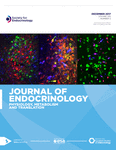The expanding role of incretin-based therapies: how much should we expect?
- Third Department of Medicine, First Faculty of Medicine, General University Hospital, Charles University, Prague, Czech Republic
- Correspondence should be addressed to M Haluzik; Email: mhalu{at}lf1.cuni.cz
The increasing prevalence of type 2 diabetes mellitus (T2DM) worldwide and its combination with other pathologies including obesity, arterial hypertension, and dyslipidemia make this disorder one of the most significant challenges of the 21st century. Although multiple classes of antidiabetic drugs are available, more than half of the patients with T2DM still do not achieve optimal glucose control owing to the progressive nature of T2DM requiring stepwise therapy intensification and suboptimal compliance to diet and lifestyle measures as well as side effects of most antidiabetic drugs, in particular, hypoglycemia and weight gain. An urgent need for safer and more effective treatments has stimulated the development of several novel classes of antidiabetic drugs in the last decade with promising new molecules still emerging (Mraz et al. 2009). In contrast to the traditional glucocentric view, the focus has shifted toward a more complex approach emphasizing the importance of the beneficial effects of novel antidiabetics on multiple cardiovascular risk factors (Skyler et al. 2009). The discovery of incretin-based therapies has markedly improved our possibilities of T2DM treatment, owing not only to their good antidiabetic efficacy but also to other positive effects such as reduction of body weight and blood pressure and improvement of dyslipidemia as well …











